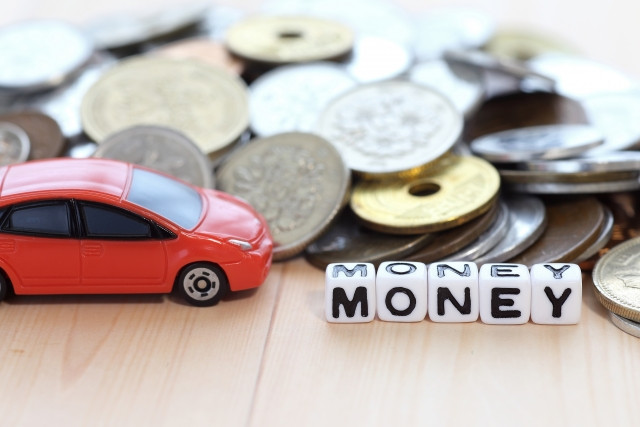Owning a car has been a lifetime goal for some. Especially when living in a country with a huge automotive industry like Japan, people may maximize such opportunities. But before doing so, it is important to understand the costs of buying a car and additional expenses in owning it.
Table of Contents
Dream of Owning a Car
Japan is one of the leading manufacturers of top-of-the-line and cost-efficient automobiles in the world. It is the haven of some world-renowned automotive brands like Subaru, Toyota, Honda, and many more. And where else would you get a great deal of purchasing a car than the place where the product is originally manufactured?
Besides, having a personal car is such a dream for some people. And why not? You get to have your own means of transportation and you will be saved from the hassle of commuting via public vehicles. Also, owning your own car can also give you a sense of self-satisfaction and pride that you are able to see and enjoy the fruit of your labor. However, is car ownership an imperative in Japan?
Why Have Your Own Car
Japan has a commendable and highly effective public transportation system. Most if not all regions and cities in the country are accessible through Japan’s railway system, and there are also buses and taxis found in most parts of the country. So basically, getting around Japan is not difficult because of the availability of public transportation especially in urban areas. So if you are currently residing near the city and within a train route, you might not feel the need of owning a kuruma (car in Japanese).

The case is different though if you are living outside urban areas such as in isolated towns or remote provinces - or even just on the outskirts of a city. These places are usually far or further from the train stations and bus services can be expensive and less available especially at night. So, it is more advisable to have a personal means of transportation like motorcycles, scooters, or four-wheeled vehicles.
Pros and Cons of Car Ownership
Having your own kuruma (meaning “car” in Japanese) has both advantages and disadvantages. The major perk of owning a car is convenience and ease of travel. If you have your own car, then you do not need to go to train stations or bus terminals, wait in queues, and bear with the overcrowding of passengers. You will also be saved from the hassle of transferring multiple times from one shuttle to another just to reach your destination. If you have a personal car, you can go to your work, fetch your child from school, go shopping, or just travel to other places more comfortably and conveniently.
As great as the benefits may sound, you also have to consider the liabilities of car ownership in Japan. The major issues you have to take into account are the initial costs, further expenses, and process including paperwork that you have to deal with when purchasing a car in Japan. But if you are willing to go through all these for the benefits, then it should not be a problem at all.
Process and Paperwork
As a country with a prominent automotive industry, there are thousands or even millions of cars for sale in Japan. So, to avoid confusion and wasting time in going to different dealers to choose a car, it is best to research online in advance about the specific type, brand, and model of the car you want. You might also need to ask a Japanese friend or hire a translator to help you in negotiating and understanding the deal with a reputable dealer before signing any paperwork.
The next step is your parking certificate, called a 車庫証明 (shako shomeisho). Please be reminded that parking on the roadside in Japan is a big no-no so if you want to buy a car, you need to secure a parking certificate in order to prove that you have a parking space for your car, as one is needed for each and every vehicle. Without this certificate, you might not be able to buy or bring your car home. There are a few exceptions for certain locations and car types, so it’s best to confirm with your local police station.
As soon your dealer accomplished the car registration, you have to pay the necessary taxes, after that, all is set to go. If you are a foreigner, see first if your country’s driver’s license is legally accepted in Japan (additionally paperwork/registration may be necessary) or if you need to acquire an International Driving Permit beforehand (Note: It’s only valid for up to a year). You have to make sure or else, you will not be allowed to drive on the street.
Writer's Pick
Costs of Cars
The costs of purchasing a car in Japan vary depending on the type and brand of the car. Here are some of the important notes you have to take into account.
Types of Cars

There are two types of cars in Japan, white plate cars (普通 futsuu, or regular) and yellow plate cars (軽 kei, or light). White plate cars are mostly faster, safer, more spacious, and suitable for long-travel. The yellow plate cars, which are more common in Japan, are much smaller with less legroom, not so fast, less safe, and usually for short distance travels only. Yellow plate cars may seem a little bit undesirable based on the description, but it is actually more common in Japan. Why? Because it is much smaller in size which is advisable in areas where streets are also narrower, driving a tinier car makes it easier to maneuver. Another reason is some people only use their own cars when traveling to short distances or within their daily realm of access because if they need to travel farther, they have a great public transportation system to access.
You can also buy cars either in brand new or secondhand. As one would expect, white plate cars are more expensive than the yellow plate ones. And they cost more to maintain as well as the taxes. But if you want a cheaper option, secondhand or used cars are mostly cheaper than buying brand new cars.
Price List of Japan’s Popular Cars
As an overview of car prices in Japan, take a look at the price list of the top 3 most popular cars in Japan in 2019.
-
TOYOTA PRIUS 2,565,200 - 3,062,400 yen
-
NISSAN NOTE 2,196,700 - 2,616,900 yen
-
TOYOTA SIENTA 1,809,500 - 2,580,000 yen
※ Japan Automobile Dealers Association, "Ranking by Passenger Car Brand Common Name" ※ Toyota Motor Corporation, "Prius" ※ Nissan, "Note" ※ Toyota Motor Corporation, "Sienta"
Brands and Modes of Payment
As mentioned earlier, car prices also vary depending on the brand, so make sure to research more about which brands offer the best car at the most efficient price. When buying a brand new car, comparing prices either online or visiting directly to a car dealership company in Japan is recommended to get good deals at the automotive manufacturer's suggested price.
If you want to enjoy the extravagance of the top Japanese luxury car brands, these are some of your options: Lexus, Acura Infiniti, Toyota Crown, Nissan GT sports car, and so on. While there are many other reliable car brands in Japan, it is recommended that first-time-buyer check reviews on what suits best for your need. In 2019, Toyota ranked as the leading brand with the most vehicles sold in Japan, followed by Nissan, Honda, Nissan, Mazda and Suzuki, which shows that most Japanese buyers invest more in domestic automotive brands.
※Japan Automobile Dealers Association, “New Cars Sold Separated by Brand”
In terms of payment, initial deposits are usually transacted using credit or debit cards. Then for the next monthly payments, you can either pay it through cards or direct transfer. Foreign bank transactions are also possible but there might be extra fees that you have to settle.
Other Things to Consider

Aside from the price of the car, you must also consider if you have the capacity to keep the car in the long run. Be mindful of the maintenance and additional expenses you have to finance while having the car. For example, you will be paying for the vehicle safety inspection (車検 shaken) every two years, liability insurance, and taxes including automobile tax when you purchase a car, tonnage tax, and annual automobile tax. The automobile tax for a private passenger car with 1 to 6 liters displacement ranges from 29,500 yen to 88,000 yen every year, and for a private van, with a maximum capacity of 4 persons, there is an additional 5,200 yen charged annually. You will be spending money as well for the name change fee, your fuel consumption, your parking space, cleaning of your car, servicing, and scratch repairs.
※ Aichi Prefectural Government, "Overview of Automobile Tax," p.3
Realize Your Dreams
As you can see, car ownership in Japan is indeed not that easy or cheap. There are a variety of processes and expenses that you have to shoulder first. However, this hassle of purchasing a car is far too little compared to the hassle of using public transportation every day especially if you are living outside the city. So, just bear these inconveniences shortly and enjoy the long-term comfort and convenience of having a personal means of transportation. Own a kuruma now and make your dream come in reality.







.jpg)

























